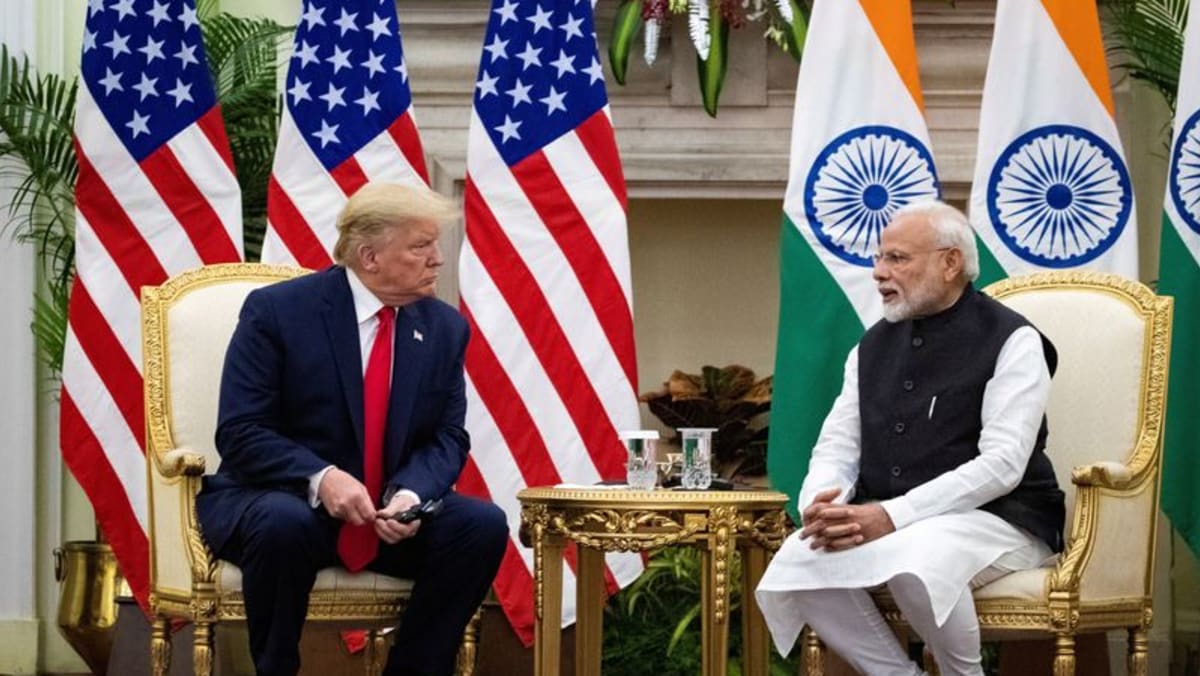Asia
India’s Modi to meet Trump with planned tariff concessions

India and the United States: A Delicate Dance of Trade and Tariffs
As Indian Prime Minister Narendra Modi prepares for his high-stakes visit to the United States on February 12, the backdrop of this trip is fraught with tension and opportunity. With U.S. President Donald Trump poised to announce a new wave of reciprocal tariffs aimed at reshaping global trade dynamics, Modi’s mission is clear: to navigate the treacherous waters of U.S.-India trade relations and avoid a potential trade war. The stakes are high, and Modi’s strategy appears to be a mix of concession and collaboration. According to government officials, India is considering significant tariff cuts across at least a dozen key sectors, including electronics, medical equipment, and certain chemicals. These reductions are designed not only to placate the Trump administration but also to align with India’s broader domestic production goals.
Trump’s Trade Agenda and Its Implications for India
President Trump has long been vocal about his dissatisfaction with the current state of U.S.-India trade relations. He has repeatedly labeled India as a “very big abuser” of trade practices, arguing that New Delhi must do more to balance the bilateral trade equation. Trump’s frustration is not unfounded; the U.S. trade deficit with India has been a point of contention for years. However, Trump’s approach to addressing this issue—through sweeping tariffs and public criticism—has created a challenging environment for India. The latest round of tariffs, reportedly aimed at multiple countries, is part of Trump’s broader effort to redraw the rules of global trade in favor of the United States. India, like many other nations, finds itself in the crosshairs of this aggressive trade policy.
India’s Strategic Response: Tariff Cuts and Trade Concessions
In response to Trump’s trade offensive, India is weighing a strategic combination of tariff reductions and trade concessions. Government officials indicate that Modi’s administration is focusing on sectors where imports from the U.S. are either already significant or have the potential to grow. For instance, India is considering lowering tariffs on items such as dish antennas, wood pulp, and certain types of medical and surgical equipment. These concessions are carefully calibrated to address U.S. concerns while also supporting India’s domestic production plans. By targeting sectors where the U.S. has a competitive edge, India hopes to create a win-win situation—one that boosts American exports while also fostering domestic industries.
The Prospect of a Mini Trade Deal
As Modi prepares to sit down with Trump, there is a growing sense of optimism about the possibility of a mini trade deal. Officials suggest that India is open to discussing such an agreement, which could cover a range of issues, from tariff reductions to market access. A mini deal would not only help to ease tensions but also provide a framework for addressing more complex trade issues in the future. However, the success of this approach will depend on both sides’ willingness to compromise. For India, this means making meaningful concessions on tariffs and market access. For the U.S., it means recognizing India’s development needs and the constraints that come with being a lower-middle-income country.
Avoiding a Trade War: Lessons from U.S.-China relations
The unfolding trade tensions between the U.S. and India are unfolding against the backdrop of the protracted trade war between the U.S. and China. The Trump administration’s decision to impose sweeping tariffs on Chinese imports—initially set at 10% but later increased—has had far-reaching consequences. China’s retaliatory measures, including tariffs on American energy exports, have only added fuel to the fire. India is keen to avoid a similar trajectory. Officials acknowledge that a “trade war-like situation” would be detrimental to both countries, disrupting supply chains and undermining economic growth. By taking proactive steps to address U.S. concerns, India hopes to prevent the escalation of trade tensions and keep the door open for a more collaborative relationship.
The Road Ahead: Challenges and Opportunities
As Modi and Trump prepare to meet, the stakes are high, but so are the opportunities. India’s willingness to cut tariffs and engage in trade negotiations reflects a pragmatic recognition of the current global trade landscape. However, the path forward will not be without challenges. India must balance its desire to appease the U.S. with its own developmental priorities, including the need to protect nascent industries and ensure access to affordable goods for its citizens. At the same time, the U.S. must demonstrate flexibility and understanding, recognizing that India’s trade policies are shaped by its unique economic and social context. If both sides can approach the negotiations with a spirit of cooperation and mutual respect, the stage may be set for a more equitable and sustainable trade relationship—one that benefits both nations and











